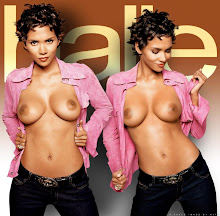Personhood is both a central problem for Buddhist ethics and Western medical ethics, and consequently a very promising area for a dialogue between the two. The problem for Buddhist ethics has always been why should people act ethically if there is no act, no actor and no consequences of action (Collins, 1982). If there is no self or other, how can there be karmic consequences, responsibility, loyalty, or even compassion? Theravaadin scholars continue to be divided over whether Buddhism suggests different ethics for those who persist in the illusion of self (kammic ethics) and for those who would transcend the illusion of self (nibbanic ethics). The paradoxical unity of compassionate ethics and nihilistic insight into selflessness has been the central koan of Mahaayaana Buddhism. Tantra and Zen suggest that the person who sees that there is no "I" is beyond good and evil.
For bioethics, struggles over abortion, animal rights and brain death have brought personhood to the forefront (Nelkin, 1983). Opponents of abortion and euthanasia, and advocates for the disabled and animals, on the other hand, assert that mere humanness or merely being alive should bestow a "right to life." But most bioethicists believe that human beings and animals take on ethical significance to the extent that they are "persons." Some, such as Tooley (1984), would set a standard which would exclude almost all animals, newborns, and the severely retarded or demented. When they specify which elements of sentience and neurological integrity create the illusion of personhood, Western bioethicists begin to sound remarkably Buddhistic: "the awareness of the difference between self and other; the ability to be conscious of oneself over time; the ability to engage in purposive actions" (see, for instance, Fletcher, 1979).
At the same time, Western bioethicists have become increasingly troubled by questions about the autonomy, continuity and authenticity of the self. Do anti-depressants create an inauthentic self, or is the self more authentic when its cheerful? Is one respecting a patient's autonomy by respecting the treatment preferences they expressed when healthy, or those they express in the throes of illness? Is it ever possible for a patient to give truly free and informed consent to treatment?
The most radical challenge to Western ethics of self- determination came in 1984 with the publication of British philosopher Derek Parfit's Reasons and Persons. In this meticulously argued tome, Parfit rejects the existence of continuous selves and concludes that an individual is as discontinuous from itself at some later time as it is from other individuals. Consequently, working for the future welfare of all beings is the same as working for one's own future welfare, since there will be no "I" to benefit in the future.
Bioethicists are only now incorporating Parfit's argument. For instance, researchers find that is impossible to accurately anticipate one's state of mind when one is sick or dying, much less when one is unconscious, undercutting the assumption of continuous personhood undergirding "living wills."
From a Buddhist/Parfitian perspective, the search for "real" preferences, central to the identity of the person, is a pointless one. With this acknowledgement, it is less troubling to place our trust in our family and friends to make decisions for our future selves (Kuczewski, 1994). More to the point, a Buddhist/Parfitian would encourage citizens to look beyond their personal preferences in dying, which may be to "die with dignity" but may also be to use as many resources as possible to stave off death, and instead participate in creating a health care system that served the needs of everyone in society.
Another area of potential dialogue is in the efforts to go beyond Cartesian (and Hindu etc.) mind-body dualism in defining life and death. Over the last twenty years the West has slowly accepted that a "person" is dead if their brain is destroyed, even if the body continues to function. Yet it still troubles many Westerners and Buddhists to declare the permanently unconscious "dead," believing that this is an example of inappropriate mind-body dualism. Other Westerners and Buddhists believe that only a "neocortical" definition of death recognizes the centrality of consciousness and personhood in ethics (Gervais, 1986). More challenging, some Western ethicists have begun to discuss the status of personhood as future technologies make possible the continuity of personality from one body to another (More, 1994). When medical technology offers reincarnation, Buddhist bioethics will certainly flourish.
Subscribe to:
Post Comments (Atom)

No comments:
Post a Comment